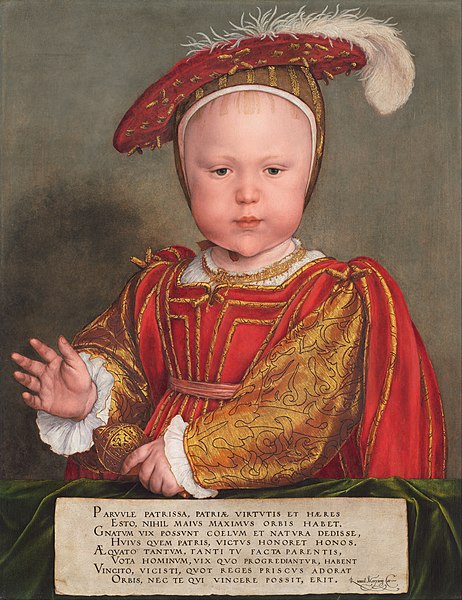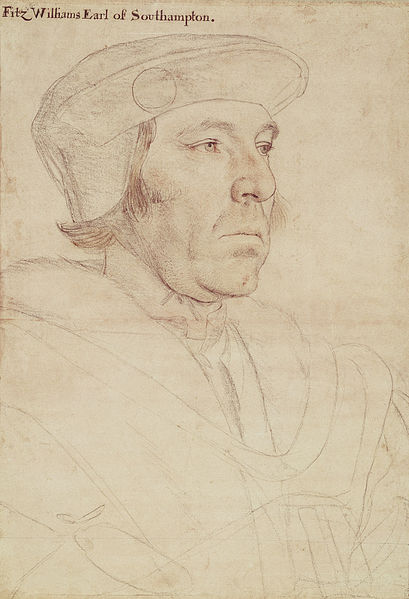 |
| Frithelstock Priory |
Arthur and
Honor were desperate to catch some of the plums available falling from the
monasterial trees. Arthur wrote to Cromwell;
‘Help me to some abbey in my
old days.’[i]
However
Arthur was in competition with many of the senior and lesser nobility,
including Norfolk, Sir Thomas Eliot and most definitely Cromwell himself.
After a
number of futile letters from Calais asking for the Abbey of Beaulieu, Waverly Abbey or Southwick Priory, Honor decided that she and Arthur needed to be
present at court in person, to pick a plum or two before they fell into other
courtiers’ hands. Arthur had to have royal permission to leave Calais, so any
trip away from the Pale had to be planned well in advance.
The trip to
London resulted in the Lisle family being awarded the Priory of Frithelstock in Devonshire, but the award came
with strings attached. Rich had to be bribed with a rich velvet robe before
the Lisles could take possession of their prize in 1537. Husee was caustic
about the venal Rich;
‘He is full of
dissimulation, I fear that he will so handle himself that he will deserve
neither thanks nor reward. He passeth all that I ever sued to.’[ii]
The visit to
court brought another result, a closer relationship with Cromwell, who wanted
to remove the intermediaries between himself and Arthur.
 |
| Leigh's Priory |
The Priory
was worth £137. 9s. 1½d per annum[iii], a prize well worth
receiving, but as nothing to the spoils taken by Rich whose own share of the
spoils, acquired either by grant or purchase, included Leighs Priory and about a hundred manors in Essex.
Arthur’s
sociability led to extravagance; he wanted to enjoy the best of food and wine
in his last years; Honor was left to curb Arthur’s desire to provide lavishly
for himself, living as well as ‘the best
duke in England’. The family were living high on debt and the grocer in
Calais threatened to cut off credit while the Bishop of Chichester and the Abbot of Westminster were demanding repayments of their loans to Arthur.
At some point before 12 October 1538 John Basset was placed in Cromwell’s household, he worked as a waiter, a job that gave him access to the Lord Privy Seal. Also in 1538 Arthur’s stepson by Elizabeth Grey, John Dudley, was made Deputy Governor of Calais. In 1537 Honor suffered a phantom pregnancy. Two years later, in 1539 Arthur was made Lord Warden of the Cinque Ports replacing Sir Thomas Cheney.
Arthur, a
conservative in all matters, found himself in trouble with Cromwell for sacking
one of the Calais garrison for avidly reading government propaganda encouraging
patriotism among the English and fostering a hatred of the Catholic countries
on the continent. Cromwell warned Husee;
‘Well, I would you advise my
lord to meddle in no such light matters. For what is passed by books, or
otherwise, by the King’s privilege, must be common [circulated] and it is
lawful for every man to occupy [read] them. All such books are set out in
furtherance of the king’s matters, in derogation of the Pope and his laws.’[iv]
Queen Number Four
 |
| Prince Edward (age 2) |
On 24th
October 1537 Jane Seymour died giving birth to Henry’s heir Prince Edward. Cromwell chose Anne of Cleves, daughter of the Duke of Cleves, to replace Henry’s dead queen. It
took two years and Henry’s determination to produce a spare as well as an heir
to bring the king up to scratch.
The Duke of
Cleve's ongoing dispute over Gelderland with Charles V made him suitable
ally for Henry in the wake of the Truce of Nice[v]. Honor sent Anne a gift almost as
soon as the treaty between the two realms was announced. The Ambassador, Henry Olisleger, the Vice-Chancellor of Cleves, passing through Calais en
route to England, told Honor that the gift had given Anne;
‘Much pleasure. And how very
acceptable that the said gift hath been to her.’[vi]
Arthur was
ordered to prepare the king’s house, the Exchequer, where Henry and Anne had
stayed during their 1532 visit to the town, for this second Anne’s reception. Cromwell
wrote;
‘The King’s Majesty’s
pleasure is that you shall view His Grace’s house there called the Exchequer,
that with all diligence all things therein necessary to be amended may be
undelayedly repaired.’[vii]
Cromwell
also told Arthur to ensure that Calais should be readied in honour of the
queen’s arrival; roads should be prepared and the town to be cleaned. Arthur
had been at court in September and had probably picked up the news of this
latest marriage project of Henry’s then.
The Queen in Calais
 |
| Earl of Southampton |
From
mid-November Anne’s escort straggled across the border into the Pale; she was
accompanied by 263 servants and 227 horse, crawling across the Low Countries at five miles a day. Anne herself arrived at the border of
the Pale on 11th December where she was received by the Lord Deputy,
the Spears and numerous other important personages from Calais, many dressed in
the King’s livery. Holinshed’s Chronicle reported;
‘At the town pike, on this
side Graueling [Gravelines], was the Lady Anne of Cleue receiued by the lord
deputie of Calis, and with the spears and horsemen belonging to the retinue
there.’[viii]
A mile out
of town the cavalcade was met by the Earl of Southampton, wearing his Admiral’s badge of
office. He was accompanied by Lord William Howard[ix], Sir Francis Bryan and Lord Grey of Wilton among others, not least among them Gregory Cromwell, the Lord Privy Seal’s only son.
Southampton’s group numbered about four hundred and they were escorted by two
hundred yeomen in the king’s colours.
Honor waited
with yet more ladies and gentlemen at the Lantern Gate, where the mayor
presented Anne with 100 marks in gold[x] and the merchants of the
Staple gave her a purse containing 100 gold sovereigns[xi].
Anne was
invited to admire Henry’s ships, the Lion[xii] and the Sweepstake[xiii], moored in the harbour
and decorated with banners of silk and gold. Both ships set off a cannonade
that filled the air with such a smog that Anne and her company could scarce see
each other.
Set Fair for England
 |
| Anne of Cleves |
The next
fifteen days saw unfavourable winds that kept Anne in Calais. Southampton
ordered the sailors to keep watch for a change in the winds. Anne insisted on Southampton and his
gentlemen dining with her, a custom not followed in England. Southampton was
very embarrassed and wrote to Henry in an attempt to assuage the royal temper,
claiming that Anne’s;
‘Manner, usage and semblance
was such that none might be more commendable, nor more like a princess.’[xiv]
During the
fortnight’s wait, in an attempt to accustom herself to Henry’s ways, Anne
begged to be taught ‘cent’, one of
Henry’s favourite card games. Honor spent a lot of time with Anne and wrote
favourably of her to her stepdaughter Anne Bassett, one of Anne’s appointed
ladies, who wrote back;
‘I humbly thank your
ladyship of the news you write me of her Grace, that she is so good and gentle
to serve and please. It should be no little rejoicement to us, her Grace’s
servants here.’[xv]
Henry met
Anne privately on New Year's Day 1540 at Rochester on her journey from Dover. Henry and some of his courtiers, following a courtly-love
tradition, went disguised into the room where Anne was staying, and Henry
boldly kissed her.
The marriage
was postponed for two days, for the king to recover from his disappointment.
Henry insisted on scrutinising the agreement between Anne’s father and himself
to try and find an out. He attempted to use the pre-contract[xvi] between Anne and Francis of
Lorraine as an excuse to avoid marrying the ‘mare
of Flanders’, but to no avail, the couple were married on 6th
January.
Bibliography
The Lisle
Letters – Muriel St Clare Byrne, Penguin Books 1985
The Ebbs and
Flows of Fortune – David M Head, University of Georgia Press 2009
Thomas
Cromwell – Robert Hutchinson, Phoenix 2008
Henry VIII –
Robert Lacey, Weidenfeld & Nicholson and Book Club Associates 1972
The Earlier
Tudors – JD Mackie, Oxford University Press 1992
The Tudor
Navy – Arthur Nelson, Conway Maritime Press 2001
Anne of
Cleves – Elizabeth Norton, Amberley Publishing plc, 2010
Six Wives –
David Starkey, Chatto & Windus 2003
The Six
Wives of Henry VIII – Alison Weir, Pimlico 1992
www.en.wikipedia
[i]
Thomas Cromwell - Hutchinson
[ii]
The Lisle Letters - Byrne
[iii]
In 2014
the relative: historic standard of living
value of that income or wealth is £70,900.00 economic status value of that income or wealth is £2,356,000.00 economic power value of that income or wealth is £30,660,000.00 www.measuringworth.com
[iv]
Cromwell - Hutchinson
[v]
Ending the Italian War of 1536-8 between France and the Hapsburgs, in which
England had been a minor player
[vi]
Anne of Cleves - Norton
[vii]
The Lisle Letters - Byrne
[viii]
Anne of Cleves - Norton
[ix]
Later Lord Admiral
[x]
In 2014
the relative: historic standard of living
value of that income or wealth is £59,950.00 economic status value of that income or wealth is £2,013,000.00 economic power value of that income or wealth is £25,670,000.00 www.measuringworth.com
[xi]
In 2014
the relative: historic standard of living
value of that income or wealth is £62,950.00
economic
status value of that income or wealth
is £2,114,000.00 economic power value of
that income or wealth is £26,950,000.00 www.measuringworth.com
[xiii]
An 84 gun ship of 300 tonnes built in 1535
[xiv]
The Lisle Letters - Byrne
[xv]
Anne of Cleves - Norton
[xvi]
In 1527 at the age of 11 Anne had been betrothed to Francis, son and heir of
the Duke of Lorraine; the betrothal was
cancelled in 1535.
I've always thought Henry must have been barking to expect his queen to willingly kiss some stranger, the idea that she should miraculously 'recognise' him was very silly.
ReplyDelete